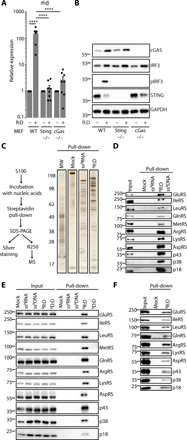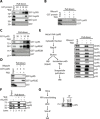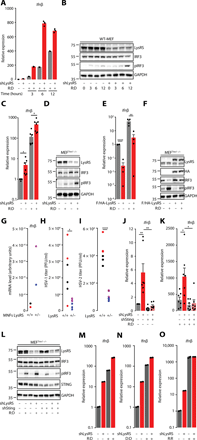Lysyl-tRNA synthetase produces diadenosine tetraphosphate to curb STING-dependent inflammation
- PMID: 32494729
- PMCID: PMC7244319
- DOI: 10.1126/sciadv.aax3333
Lysyl-tRNA synthetase produces diadenosine tetraphosphate to curb STING-dependent inflammation
Abstract
Inflammation is an essential part of immunity against pathogens and tumors but can promote disease if not tightly regulated. Self and non-self-nucleic acids can trigger inflammation, through recognition by the cyclic GMP-AMP (cGAMP) synthetase (cGAS) and subsequent activation of the stimulator of interferon genes (STING) protein. Here, we show that RNA:DNA hybrids can be detected by cGAS and that the Lysyl-tRNA synthetase (LysRS) inhibits STING activation through two complementary mechanisms. First, LysRS interacts with RNA:DNA hybrids, delaying recognition by cGAS and impeding cGAMP production. Second, RNA:DNA hybrids stimulate LysRS-dependent production of diadenosine tetraphosphate (Ap4A) that in turn attenuates STING-dependent signaling. We propose a model whereby these mechanisms cooperate to buffer STING activation. Consequently, modulation of the LysRS-Ap4A axis in vitro or in vivo interferes with inflammatory responses. Thus, altogether, we establish LysRS and Ap4A as pharmacological targets to control STING signaling and treat inflammatory diseases.
Copyright © 2020 The Authors, some rights reserved; exclusive licensee American Association for the Advancement of Science. No claim to original U.S. Government Works. Distributed under a Creative Commons Attribution NonCommercial License 4.0 (CC BY-NC).
Figures






References
Publication types
Grants and funding
LinkOut - more resources
Full Text Sources
Research Materials

